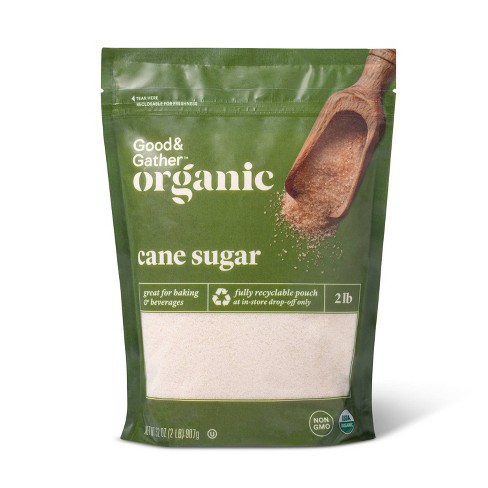Cane Sugar Processing: Key Technologies for Superior Sugar Manufacturing
Cane Sugar Processing: Key Technologies for Superior Sugar Manufacturing
Blog Article
A Thorough Summary of the Health And Wellness and Economic Ramifications of Walking Stick Sugar Processing on Neighborhood Communities
Walking cane sugar processing plays a crucial role in shaping the financial landscape of local communities, providing employment possibility and boosting supplementary industries. Nevertheless, the wellness implications connected with high sugar consumption can not be neglected, as they add to rising prices of excessive weight and diabetic issues. This nuanced dynamic welcomes a crucial assessment of just how communities can maximize economic gains while addressing journalism health difficulties they deal with. The exploration of lasting techniques and instructional campaigns might just hold the key to integrating these conflicting interests. What strategies might communities carry out to attain this balance?
Financial Benefits of Walking Cane Sugar Processing
Walking stick sugar handling offers significant economic advantages that expand past the immediate farming sector. The growing and processing of sugarcane develop various work possibilities, from farming to manufacturing and circulation. This employment generation not just sustains regional economic climates but additionally cultivates neighborhood growth by providing steady income sources for families.
In addition, the sugar industry boosts ancillary companies, consisting of transportation, devices supply, and product packaging solutions (Cane Sugar Processing). As these industries grow, they add to a much more robust financial framework, boosting overall community strength. The export potential of refined walking cane sugar even more enhances financial advantages, positioning areas as affordable players in worldwide markets
Financial investment in contemporary handling facilities can result in raised productivity and performance, therefore minimizing waste and maximizing source use. This shift not only profits the neighborhood economy yet also supports sustainability initiatives by reducing ecological influences.
Moreover, the revenue generated from walking cane sugar handling can be reinvested in local infrastructure, education and learning, and healthcare, promoting all natural area development. Generally, the financial benefits of cane sugar processing are diverse, providing a structure for sustaining prosperity in farming areas.
Health Risks Associated With Sugar Consumption
Excessive sugar usage poses significant health threats that warrant major focus. High consumption of included sugars, especially from refined foods and beverages, has been linked to various wellness issues.
Additionally, high sugar intake is related to cardiovascular condition. Elevated blood sugar levels can cause insulin resistance, a precursor to various heart-related problems. In addition, sugar can have destructive impacts on oral wellness, resulting in cavities and gum tissue disease, as microorganisms in the mouth grow on sugar, creating acids that erode tooth enamel.
Furthermore, emerging research study recommends a prospective link in between high sugar usage and mental health disorders, such as depression and stress and anxiety. As communities come to grips with these health and wellness risks, it becomes necessary to advertise understanding and urge healthier nutritional options. Dealing with sugar usage is vital not only for individual wellness but also for the general wellness of neighborhood areas, highlighting the requirement for detailed public wellness techniques.
Ecological Influences of Sugar Manufacturing
Frequently ignored in conversations regarding sugar's ramifications is the significant environmental effect of sugar manufacturing. The farming of sugarcane usually necessitates extensive land use, causing logging, loss of biodiversity, and interruption of regional ecosystems. The conversion of forests and wetlands into sugar haciendas can cause environment devastation, harmful many types and changing environmental balance.
Moreover, sugar manufacturing is resource-intensive, consuming considerable quantities of water for irrigation. This can lead to deficiency of local water sources, adversely influencing both farming methods and community accessibility to clean water. In addition, making use of chemical plant foods and chemicals in sugarcane farming can contribute to soil degradation and water pollution, as drainage from these chemicals enters nearby rivers and lakes, influencing marine life and human health.
The ecological impact reaches the processing stage, where power usage and waste generation more exacerbate eco-friendly problems. Air air pollution from melting sugarcane areas, in addition to greenhouse gas exhausts, add to climate adjustment. Because of this, the ecological implications of sugar production warrant major consideration, urging stakeholders to embrace web even more sustainable practices to mitigate these unfavorable effects on neighborhood ecosystems and communities.
Job Production and Neighborhood Advancement
The environmental challenges posed by sugar production are typically counterbalanced by its capacity for financial advantages, specifically in task production and neighborhood growth. The walking stick sugar market acts as a significant resource of employment in lots of rural areas, giving jobs across various skill degrees, from farming labor to handling and circulation roles. This work not just sustains specific families however also adds to the general financial vigor of regional areas.
Additionally, the facility of sugar processing facilities promotes secondary organizations, such as transport solutions, equipment supply, and upkeep companies. As these businesses prosper, they develop additional tasks and bolster local economies. The revenue generated from the sugar market additionally causes raised tax profits, which can be reinvested into social work such as medical care, education and learning, and framework growth.
Additionally, the sugar market often engages in neighborhood development initiatives, such as supporting regional colleges and wellness programs, therefore improving the lifestyle for residents. By promoting strong area connections and advertising economic development, the cane sugar processing market plays a vital role in uplifting neighborhood populaces, making it an essential component of lasting development methods in sugar-producing areas.
Balancing Health And Wellness and Economic Growth
In browsing the complexities of walking stick sugar handling, an important difficulty depends on stabilizing wellness factors to consider with economic growth. The sugar market dramatically contributes to local economies by creating work, boosting relevant industries, and enhancing tax obligation earnings. Nonetheless, the health effects related to excessive sugar usage can cause chronic conditions such as excessive weight, diabetic issues, and cardiovascular concerns, which can problem public health and wellness systems and reduce labor additional hints force productivity.

Moreover, regulative structures can play a critical role in guiding industry techniques towards more lasting and health-conscious methods. By cultivating partnership in between government bodies, health organizations, and the sugar market, neighborhoods can navigate the dichotomy of wellness and economic development, making sure that the advantages of cane sugar processing are equitably shared while focusing on public wellness.
Verdict
To conclude, the handling of walking cane sugar offers both considerable financial advantages and noteworthy wellness risks for local neighborhoods. While it cultivates job creation and boosts local development, the involved wellness problems, specifically regarding obesity and diabetes, demand a mindful harmonizing act. By advertising accountable consumption and investing in neighborhood education and learning and lasting practices, it is possible to optimize economic advantages while lessening damaging health and wellness results, thus guaranteeing a healthier future for neighborhood populations.
In web link addition, sugar can have damaging effects on oral health and wellness, resulting in dental caries and periodontal condition, as germs in the mouth flourish on sugar, creating acids that erode tooth enamel.
Addressing sugar usage is important not just for specific health and wellness but also for the total well-being of regional areas, stressing the need for detailed public wellness methods.
Regularly ignored in conversations concerning sugar's effects is the substantial environmental effect of sugar production. The health effects linked with too much sugar intake can lead to chronic diseases such as weight problems, diabetes, and cardio problems, which can problem public health systems and reduce workforce efficiency.

Report this page